“But I don’t want to go among mad people,” Alice remarked.
“Oh, you can’t help that,” said the Cat: “we’re all mad here. I’m mad. You’re mad.”
“How do you know I’m mad?” said Alice.
“You must be,” said the Cat, “or you wouldn’t have come here.”
Alice’s Adventures in Wonderland by Lewis Carroll
With the long nineteenth century comes mass literacy and media and a flourishing of literary genres. Here are a few genres that were established by the end of the 19th century: horror, ghost stories, crime fiction, western, science fiction and fantasy. This period is definitely an other exciting one for fantasy fans as we will see shortly. But first of all, let’s cover the historical background that surrounded the writing of all these tremendous books.
The long nineteenth century starts with the French revolution in 1789 and ends with the First World War in 1914. Those years were marked by great scientific and technological progress and big changes in society.
In terms of scientific advances, Darwinism gained acceptance, medical theory and treatments improved significantly and quantum physics started. On the technological front, steam-powered ships and railways were introduced, the petroleum industry started, the automobile was launched and the airplane was developed. Electric power generation also started during the 19th century. Finally, the telephone was invented.
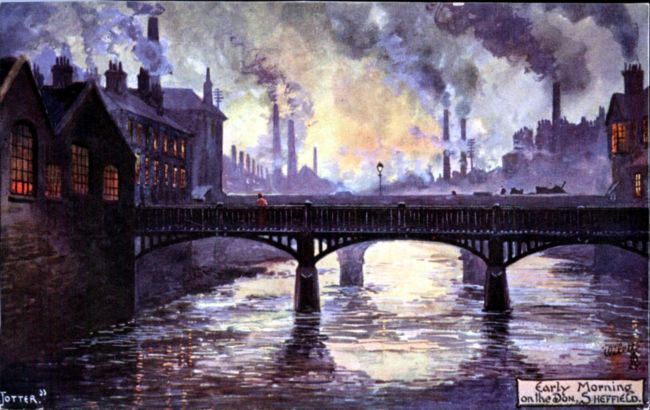 The industrial revolution in itself brought a significant increase in worker wages. The world population increased dramatically and urbanization accelerated, fuelled by mass production of consumer goods, food canning and refrigeration. Rapid growth caused extremely cramped living conditions for workers in cities. That situation favoured the spread of diseases such as tuberculosis, cholera from polluted water and typhoid. Minors were also affected by lung diseases due to the nature of their work. At the same time though, a middle class of professionals enjoyed much better living conditions.
The industrial revolution in itself brought a significant increase in worker wages. The world population increased dramatically and urbanization accelerated, fuelled by mass production of consumer goods, food canning and refrigeration. Rapid growth caused extremely cramped living conditions for workers in cities. That situation favoured the spread of diseases such as tuberculosis, cholera from polluted water and typhoid. Minors were also affected by lung diseases due to the nature of their work. At the same time though, a middle class of professionals enjoyed much better living conditions.
In terms of society, slavery was abolished. America faced a civil war and was thereafter reconstructed. Also, once great and powerful empires began to break apart: Spain, Ottoman Turkey, the Mughal Empire, Portugal. At the same time European countries started a frantic colonisation of African countries.
In the field of ideologies, modern humanism, individualism and rationality emerged. They promoted the determination of right and wrong by appealing to universal human qualities, without resorting to supernatural or alleged divine authority from religious texts. Finally this period saw the foundation of the Marxist society and representative democracy came in favour.
Now that we have a clear historical background in mind, let’s move to what is the focus of this post: fantasy literature and storytelling. In general terms, mass literacy and proliferation of mass media was one of the defining aspects of the long nineteenth century. Also, the end of the 19th century saw the invention of cinema, which then became a major medium of telling stories. This will contribute to a proliferation of literary works, as the long list of fantasy books below will testify.
In the fantasy realm, modern fantasy started mid-19th century, but only began to reach a large audience during the 20th century. It all started with George MacDonald who wrote The Princess and the Goblin (1858) and Phantastes. The first is a children book relating a story about goblins and magic, a fairy land, an enchanted mirror and giants. The second book is now considered as the first fantasy novel ever written for adults. It has been a major reference for Tolkien and C.S. Lewis later on.
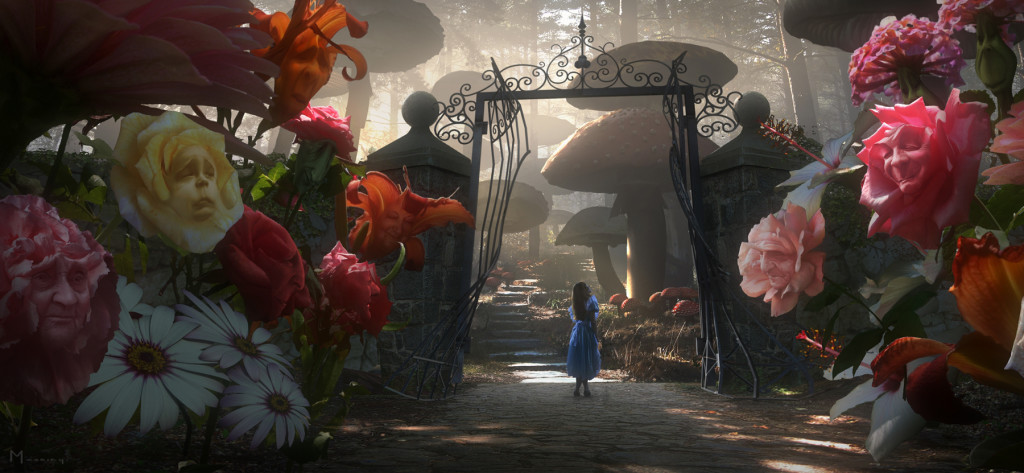 Then in 1865 came Alice’s Adventures in Wonderland by Charles Lutwidge Dodgson, published under the pseudonym Lewis Carrol. It has been an enormously influential work in the fantasy genre and has inspired many adaptations in films, comic books, live performances and video games.
Then in 1865 came Alice’s Adventures in Wonderland by Charles Lutwidge Dodgson, published under the pseudonym Lewis Carrol. It has been an enormously influential work in the fantasy genre and has inspired many adaptations in films, comic books, live performances and video games.
At the same period, Jules Verne wrote several books that are major influences for fantasy and science-fiction: Twenty Thousand Leagues under the Sea, Journey to the Centre of the Earth, From the Earth to the Moon, The Mysterious Island (which provided some inspiration for the TV series Lost) and Off on a Comet.
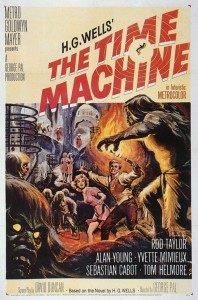 H.G. Wells wrote several books towards the end of the 19th century which are huge influences for modern science-fiction but also fantasy. Books such as The Time Machine, The Island of Doctor Moreau, The Invisible Man, The War of the Worlds, The Sleeper Awakes, The First Men in the Moon or The Wonderful Visit.
H.G. Wells wrote several books towards the end of the 19th century which are huge influences for modern science-fiction but also fantasy. Books such as The Time Machine, The Island of Doctor Moreau, The Invisible Man, The War of the Worlds, The Sleeper Awakes, The First Men in the Moon or The Wonderful Visit.
Other famous books written during that period are The Well at the World’s End by William Morris, which was an important milestone in the history of fantasy. Or of course The Wonderful Wizard of Oz by L. Frank Baum published in 1900 and Peter Pan by J. M. Barrie published in 1902. The Wonderful Wizard of Oz is considered the first American fairy tale due to its references to clear American locations. It has been an inspiration for many fantasy novels and films.
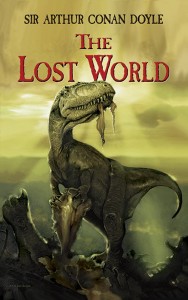 The Lost World type of fantasy, that involves discovery of a new world out of time, place or both, was initiated by H. Rider Haggard in 1885 with King Solomon’s Mines. Then in 1912 Sir Arthur Conan Doyle wrote The Lost World, which coined the name of the genre.
The Lost World type of fantasy, that involves discovery of a new world out of time, place or both, was initiated by H. Rider Haggard in 1885 with King Solomon’s Mines. Then in 1912 Sir Arthur Conan Doyle wrote The Lost World, which coined the name of the genre.
Finally another genre that became popular in the 19th century is Gothic Horror, which combines fiction, horror and Romanticism. Its most famous works are Mary Shelley’s Frankenstein, Bram Stoker’s Dracula and the works of Edgar Allan Poe. The genre originated in 1764, with the novel The Castle of Otranto by Horace Walpole, subtitled A Gothic story.
In summary, the long nineteenth century is the period during which modern fantasy started. At the end of it, many different sub-genres of fantasy and science-fiction were already flourishing. Many novels from that period have had and still have a huge influence on modern fantasy.
This ends our fantastic voyage through historical periods as, in the next post, we will dig straight into the contemporary period.

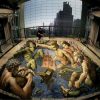





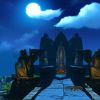
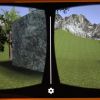

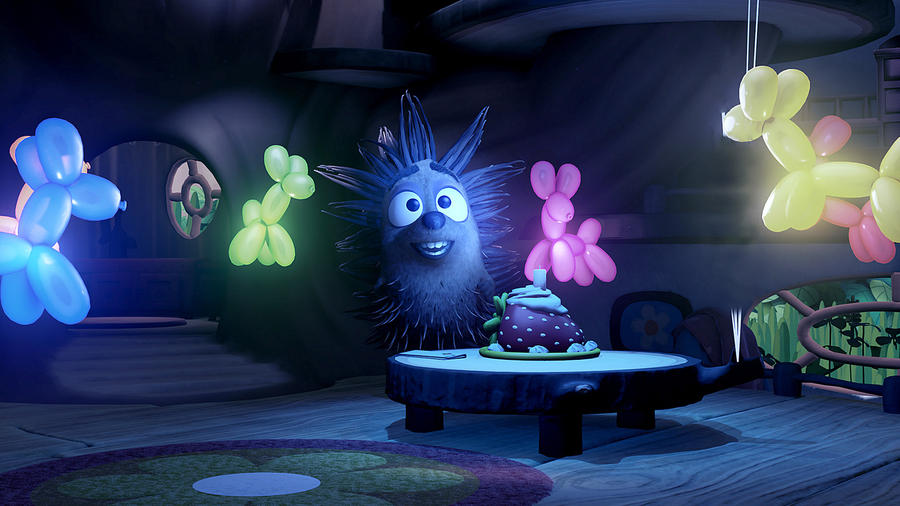

Please share your comments